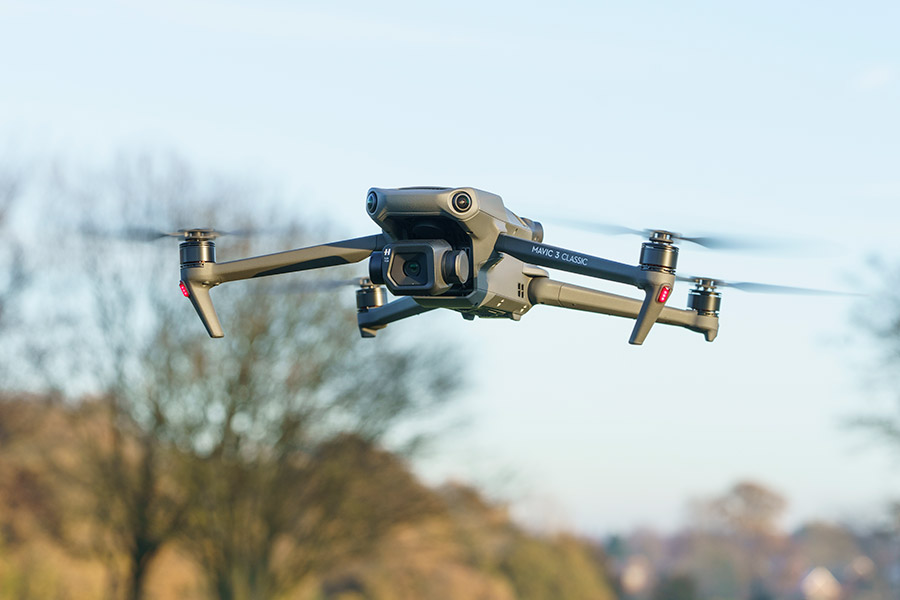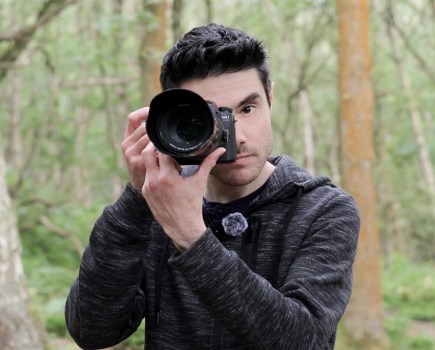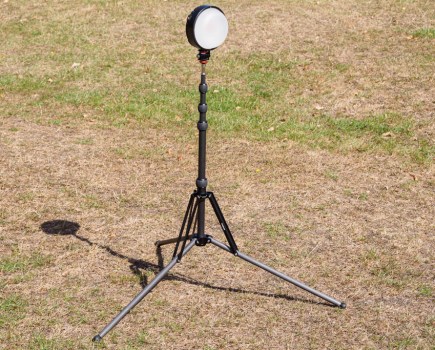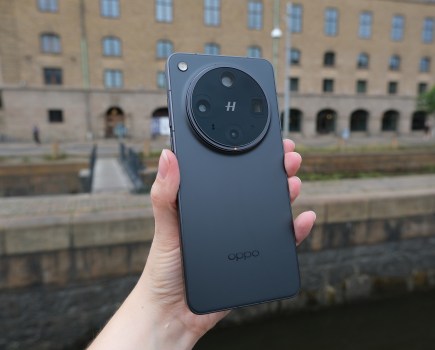DJI’s Mavic 3 Classic has everything that we love about the Mavic 3 in a more affordable package, Angela Nicholson has been flying it for our review, to find out if it’s the best drone for photography.
Amateur Photographer verdict
Mavic 3 Classic is easy to set up and fly, the 24mm camera does a great job for stills AND produces superb video with a good level of detail.- Great results from the larger-than-average sensor
- Easy to fly
- Class 1 classification
- Requires an understanding of the drone regulations
- The price rises if you want the DJI RC controller
- Extra batteries advisable
DJI Mavic 3 Classic at a glance
- Drone with integrated Hasselblad camera
- Up to 46 minutes flight time per battery
- 20MP Four Thirds CMOS sensor
- Max video resolution of 5.1K (5120 x 2700) at up to 50fps
- 24mm (equivalent) f/2.8 lens
- 3-axis motorised stabilisation
- 895g take-off weight
- $1,399 / £1,119 with DJI RC controller, while stocks last: the DJI Mavic 3 Classic has been discontinued, but remains available new, with plenty around second-hand, too.
DJI introduced the Mavic 3 Classic as a more affordable alternative to the Mavic 3 that was announced in November 2021, with the specifications of the two drones being almost identical apart from in one respect, the camera(s). Whereas the DJI Mavic 3 has two cameras, the Mavic 3 Classic has just one. That might sound like a deal-breaker, but in this instance, it was a shrewd move on the manufacturer’s part. That’s because the Classic has the Mavic 3’s 24mm equivalent 20MP Hasselblad camera with a Four Thirds sensor and it eschews the 162mm equivalent camera with a 1/2-inch sensor, which is really only suitable for checking distant objects and route planning.
Consequently, the Mavic 3 Classic is able to shoot 20MP, 12-bit DNG raw files or 5.1K video at up to 50p while 4K video can be shot at up to 120p, which is ideal for anyone wishing to create slow-motion videos.
Unlike with smaller drone cameras, the Mavic 3 Classic gives control over the aperture, ranging from f/2.8-11. That’s useful for controlling the shutter speed and keeping it to twice the frame rate for video. In addition, the sensitivity can be set in the range ISO 100-6400 for stills or video and the shutter speed range is 8-1/8000sec.
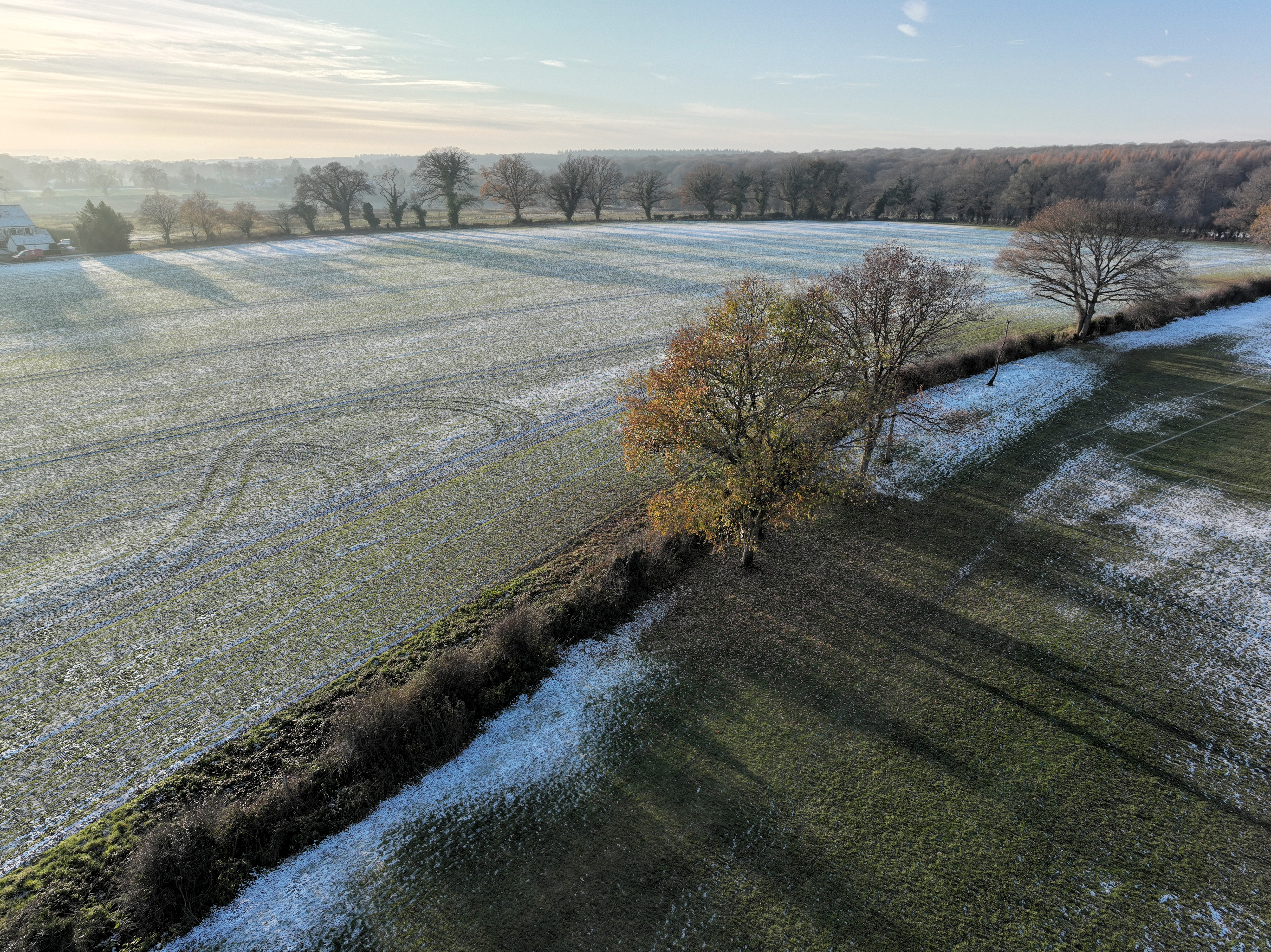
DJI Mavic 3 Classic: Key Features
- Single camera: While the Mavic 3 has two cameras, the Mavic 3 Classic just has the more useful one
- Folding legs: The legs fold in against the body to make the Mavic 3 Classic easier to transport between flights
- Object detection: Omnidirectional sensors help avoid collisions during a flight
- Storage: There’s a microSD card slot and 8GB of onboard storage
- Classification: The Mavic 3 Classic is a Class 1 drone and can be flown in the Open category
DJI Mavic 3 Classic: Flight time
Aside from the photographic specifications, one of the most impressive aspects of the Mavic 3 Classic is its flight time on a single battery charge. Like the Mavic 3, this is quoted as up to 46 minutes in flight or 40 minutes hovering. As before, I found these figures a little optimistic, but the wind strength and temperature play a role in how long the battery lasts. Nevertheless, I was able to fly for 36 minutes in still conditions at around 0°C. That’s a long time in drone terms, but I’d still be inclined to buy an extra battery (£179) or two, or invest in the Fly More Kit (£529) that includes two batteries, a charging hub, a car charger and spare propellers along with a bag.
DJI Mavic 3 Classic: Easy flying
DJI allows you to take full control over the flight of the Mavic 3 Classic, but the onboard navigation systems (GPS, Galileo and BeiDou) take the pressure off, ensuring that the drone it hovers where you release the control sticks and doesn’t drift.
There’s also an omnidirectional object avoidance system that does a great job of spotting objects in the Classic’s flightpath. It can be set to stop the drone or fly around the object, or if you’re feeling confident, you can turn the system off to allow you to fly around the object manually.
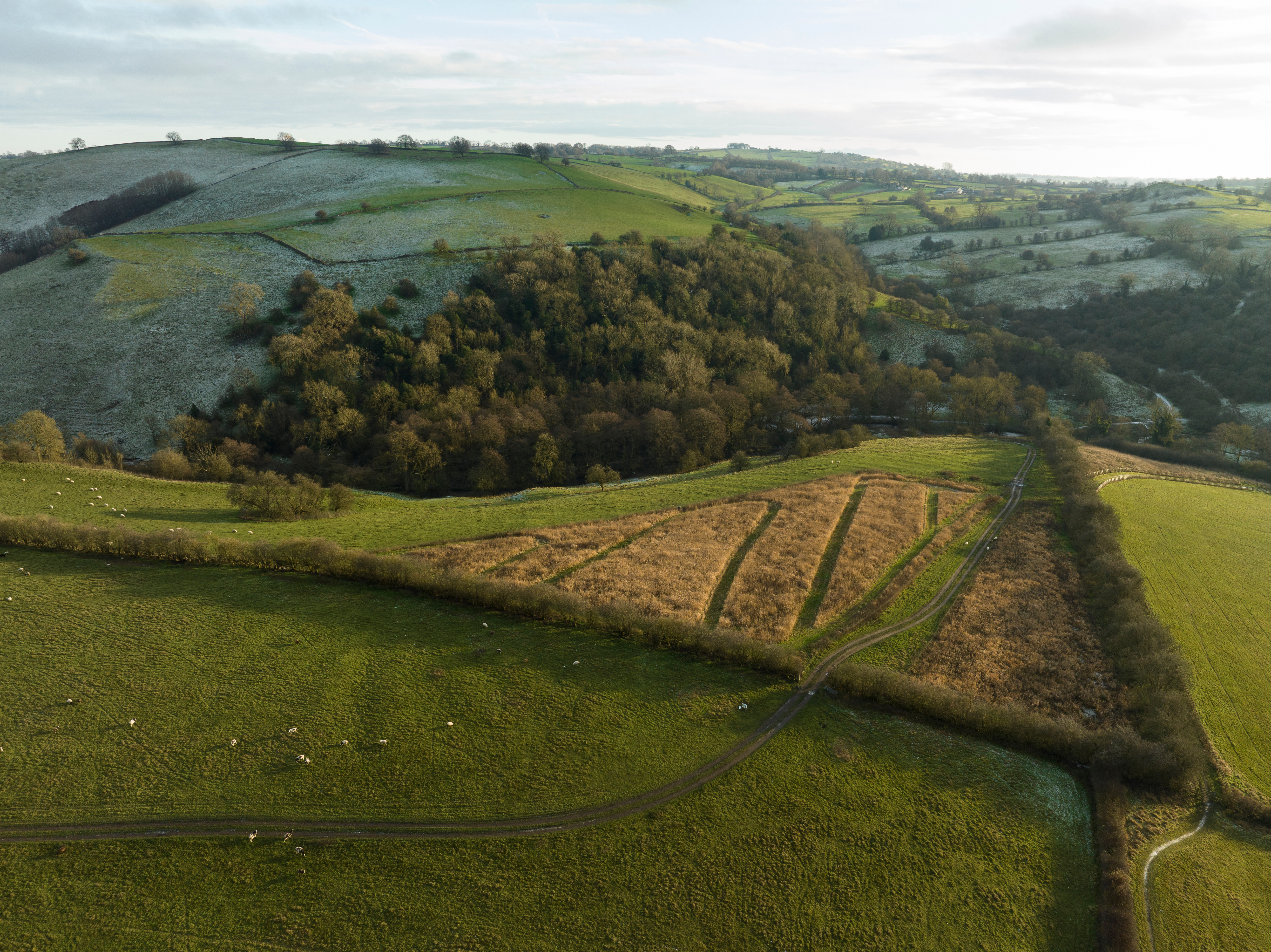
As usual, the Mavic 3 Classic has DJI’s QuickShots modes (Drone, Rocket, Circle and Helix) that fly the drone in specific patterns while recording to get professional-looking footage. There’s also the MasterShots mode that strings together some of the QuickShots modes to create dynamic footage, and ActiveTrack 5.0 that makes it easy to keep a subject in the frame while you take control of the flight.
Stills photographers will be pleased to learn that the Mavic 3 Classic can shoot JPEG and DNG raw files, and there’s a panorama mode that captures a sequence of images that are stitched together automatically but can also be stitched using your preferred software.
DJI Mavic 3 Classic: Image quality
As it has the same camera as the main camera on the Mavic 3, it comes as no surprise to find that the Mavic 3 Classic produces superb video and stills with a good level of detail. Straight from the camera, the JPEGs look a little more vibrant and more share-ready than the raw files, but it only takes a few seconds to get the raw files looking great. Further good news is that DJI seems to have toned down the saturation of blue skies, so they look natural from the get-go.
It’s also good to see that flare is controlled well and directing the camera straight towards the sun, or moving so the sun’s rays scud across the front element, didn’t cause any major issues with hot spots in my images.
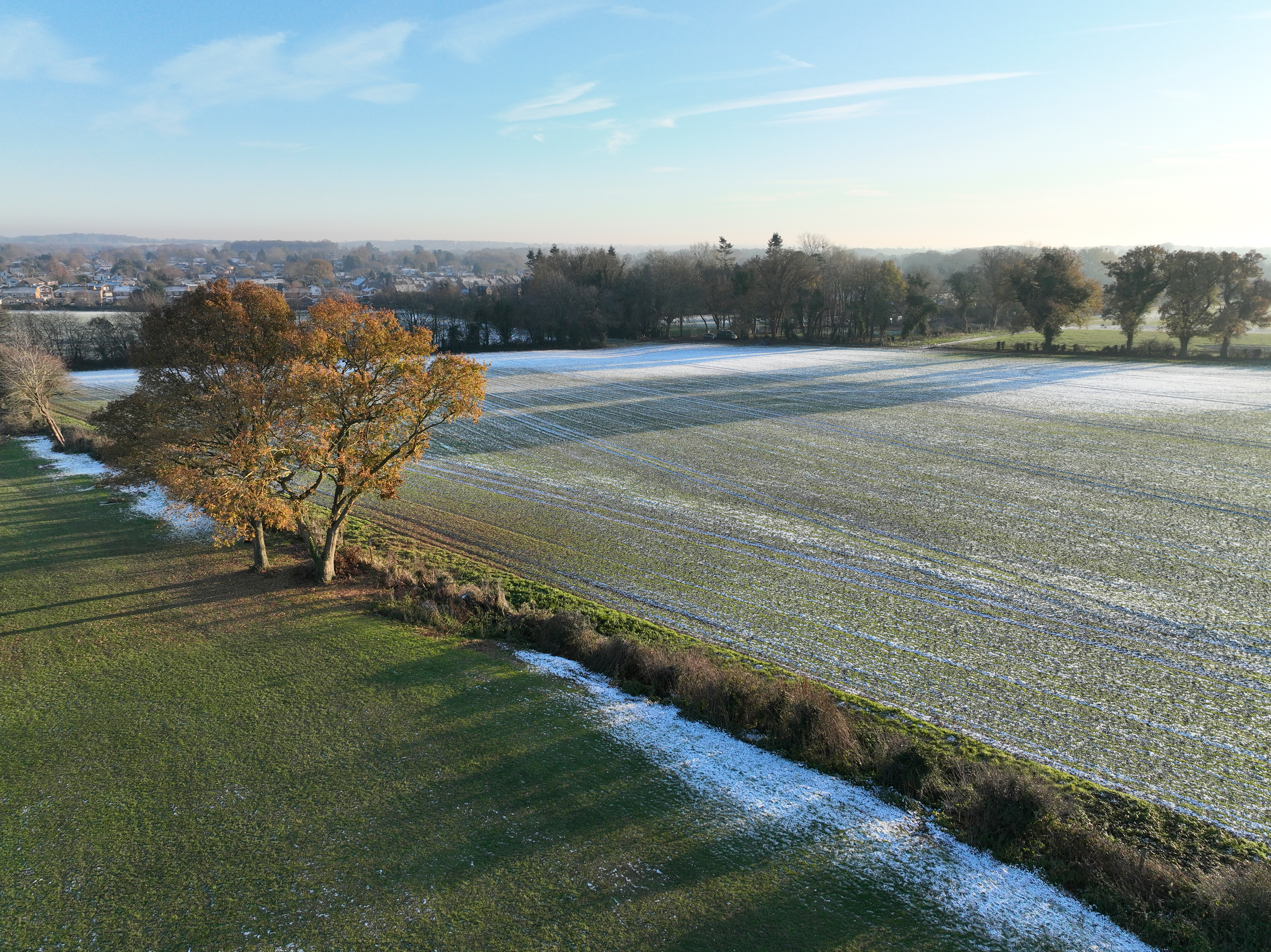
DJI Mavic 3 Classic: Controller options
DJI sells the Mavic 3 Classic in three kits. The most affordable is the drone without a controller, for those who already have a compatible unit. The next kit includes the DJI RC-N1 controller which has a clamp and cables to connect it to a smartphone. Alternatively, there’s the kit with the DJI RC controller which has a built-in screen so you don’t need to connect your phone. If you can stand paying the extra £130, the DJI RC controller is quicker and easier to use, and it’s nice to have your phone free to use as normal.
DJI Mavic 3 Classic: Verdict
As much as I like the DJI Mavic 3, the DJI Mavic 3 Classic would be my pick of the two drones. I don’t really have a need for the 162mm camera and the 24mm camera does a great job for stills and video.
Like all DJI’s recent imaging drones, the Mavic 3 Classic is easy to set up and fly, and seeing the images on the controller screen is bound to put a smile on your face.
Related reading:

